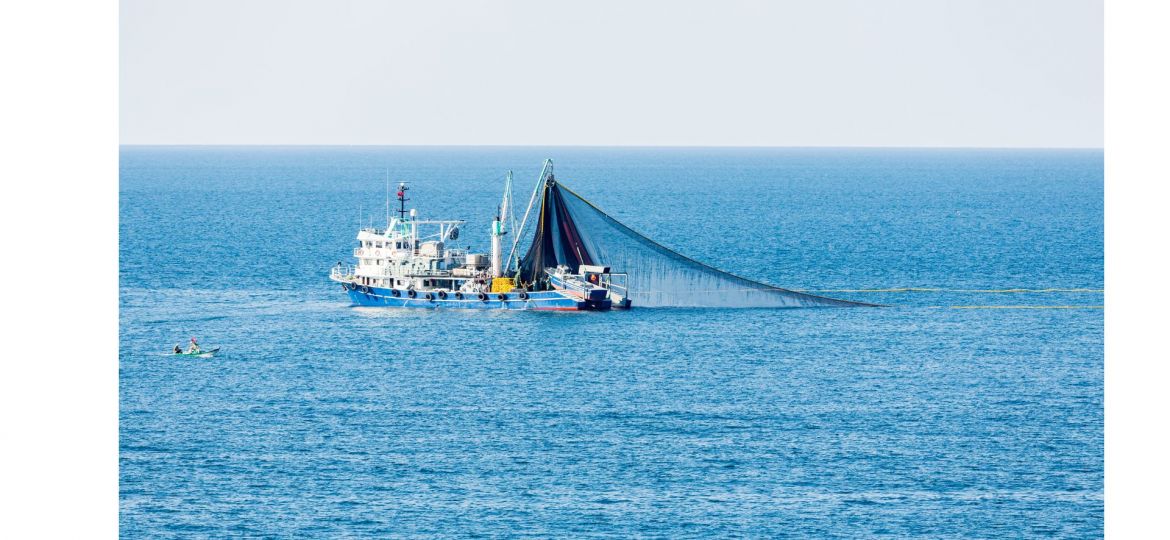
The French Research Institute for Exploitation of the Sea (Ifremer) is at the forefront of innovation in the sustainable management of marine resources. Its latest project, “Game of Trawls”, combines cutting-edge technology, particularly in imaging, with international collaboration to reinvent the way we manage fisheries.
the challenges facing trawling
Trawling is a fishing method widely used throughout the world, but it entails significant environmental risks. The practice involves dragging heavy nets across the seabed to catch large quantities of fish. However, this efficiency comes at a considerable ecological cost. Trawls damage fragile marine habitats, such as coral reefs and seabeds, by scraping the ocean floor, causing serious disruption to ecosystems and compromising their ability to provide essential ecosystem services.
In addition, non-selective trawling often leads to the accidental capture of non-target species, including endangered and juvenile species, threatening marine biodiversity and undermining the sustainability of fish stocks. These practices have devastating repercussions on marine biodiversity and the food security of fishing-dependent populations. Against this backdrop, the development of new technologies and fishing gear that are more selective and less damaging to ecosystems is becoming an urgent priority.
This is why Ifremer is involved in the “Game of Trawls” project to rethink the way we manage fisheries, proposing innovative and sustainable solutions that preserve both marine resources and the livelihoods of coastal communities.
The Game of Trawls project: towards intelligent and selective fishing
Ifremer’s “Game of Trawls” project represents a major step towards more intelligent and selective fishing. By using AI to analyze a wealth of data from various sources such as satellites, underwater sensors and field observations, this project aims to fill a major gap in previously used trawling methods. Currently, no fishing vessel is equipped with a system that provides precise, real-time information on the exact composition of its catch. To remedy this, Ifremer is exploring the use of cameras installed on fishing vessels to provide images of fishing operations in real time. However, obtaining a high-resolution image during trawling presents a complex challenge due to the increased turbidity caused by the resuspension of sediments scraped up by the trawls. For this reason, various cameras have been evaluated for their performance in terms of image quality, sensor sensitivity, size measurement capability, ability to see in turbid conditions, cost, footprint, among other criteria. The Orphie camera from i2S emerged as an optimal choice due to its ability to significantly improve visibility in turbid waters, thereby enhancing the detection performance of the “Game of Trawls” system.
By combining this visual data with other sources such as satellite data and sonar surveys, as well as with machine learning algorithms and simulation techniques, Ifremer researchers are able to create highly accurate predictive models. These models enable scientists to better understand the complex interactions between human activities and marine ecosystems, helping to assess the effectiveness of current fishing practices and design more sustainable management strategies to preserve the long-term health of the oceans.
International collaboration for sustainable results
A crucial aspect of the “Game of Trawls” project is its international dimension. Ifremer collaborates with researchers, governments and non-governmental organizations around the world to share data, expertise and best practices. This collaboration promotes a holistic approach to fisheries management, taking into account the complex interactions between different stakeholders and marine ecosystems.
By working together, participants in the “Game of Trawls” project can develop innovative solutions that have already demonstrated their adaptability to different species and geographical areas, as demonstrated by their successful use for sea cucumber stock assessment in the waters of Saint-Pierre-et-Miquelon in 2021 and 2022.
This collaborative approach ensures that the solutions proposed are adapted to the specific needs of each region and community, thus promoting sustainable and equitable management of marine resources.
The future of fisheries management
The “Game of Trawls” project represents a significant advance in the development of intelligent trawls controlled by artificial intelligence. This innovative prototype has distinguished itself as one of the most technologically advanced projects of its kind, paving the way for a proactive and effective approach to the conservation of the oceans and their precious resources. By combining marine science expertise, cutting-edge technologies and international collaboration, this initiative has propelled France to the forefront of the European scene and is attracting growing interest among industry players. With “Game of Trawls”, Ifremer is paving the way for a future in which ocean exploitation is sustainable and balanced, preserving its beauty and biodiversity for generations to come.
